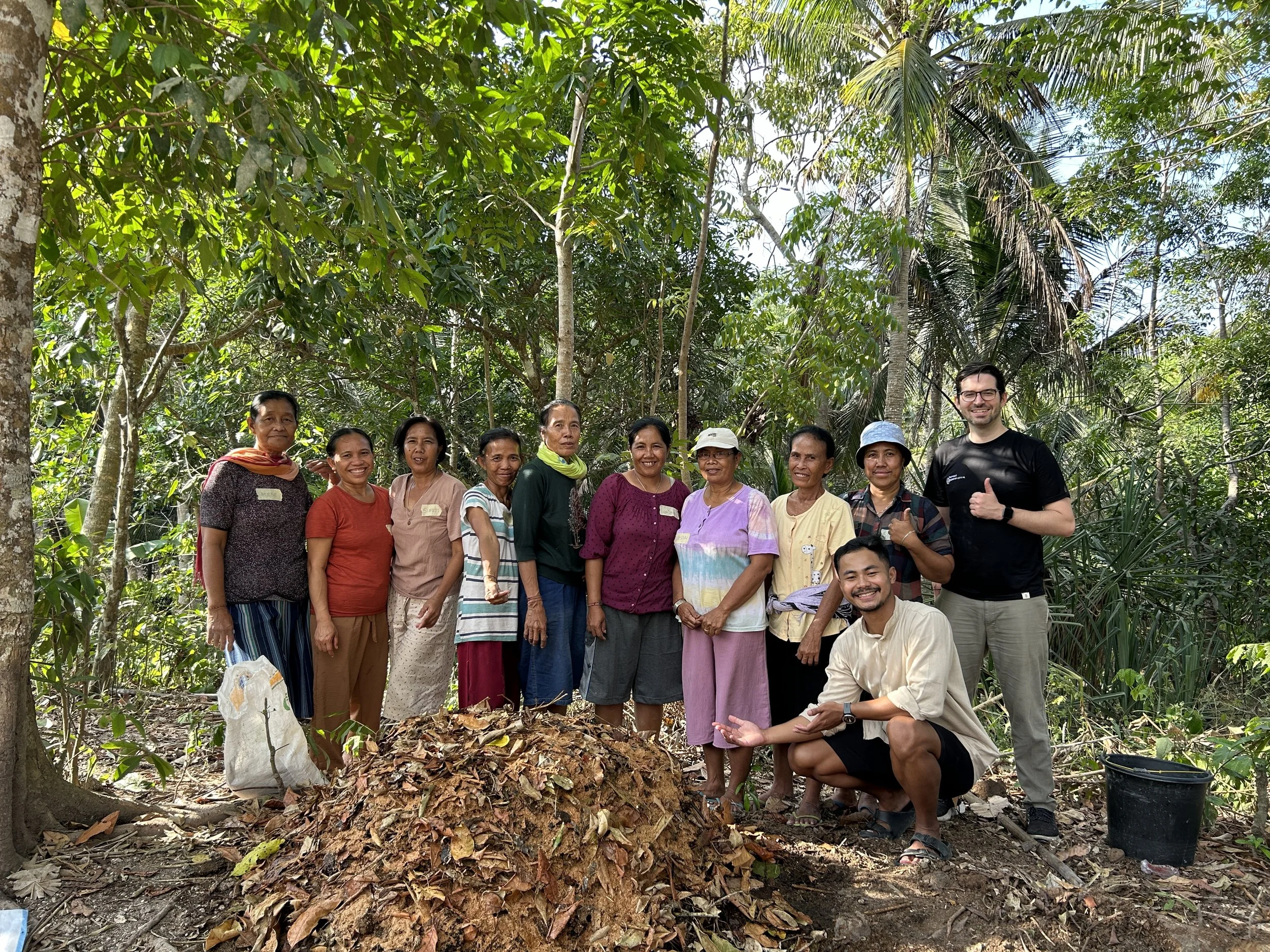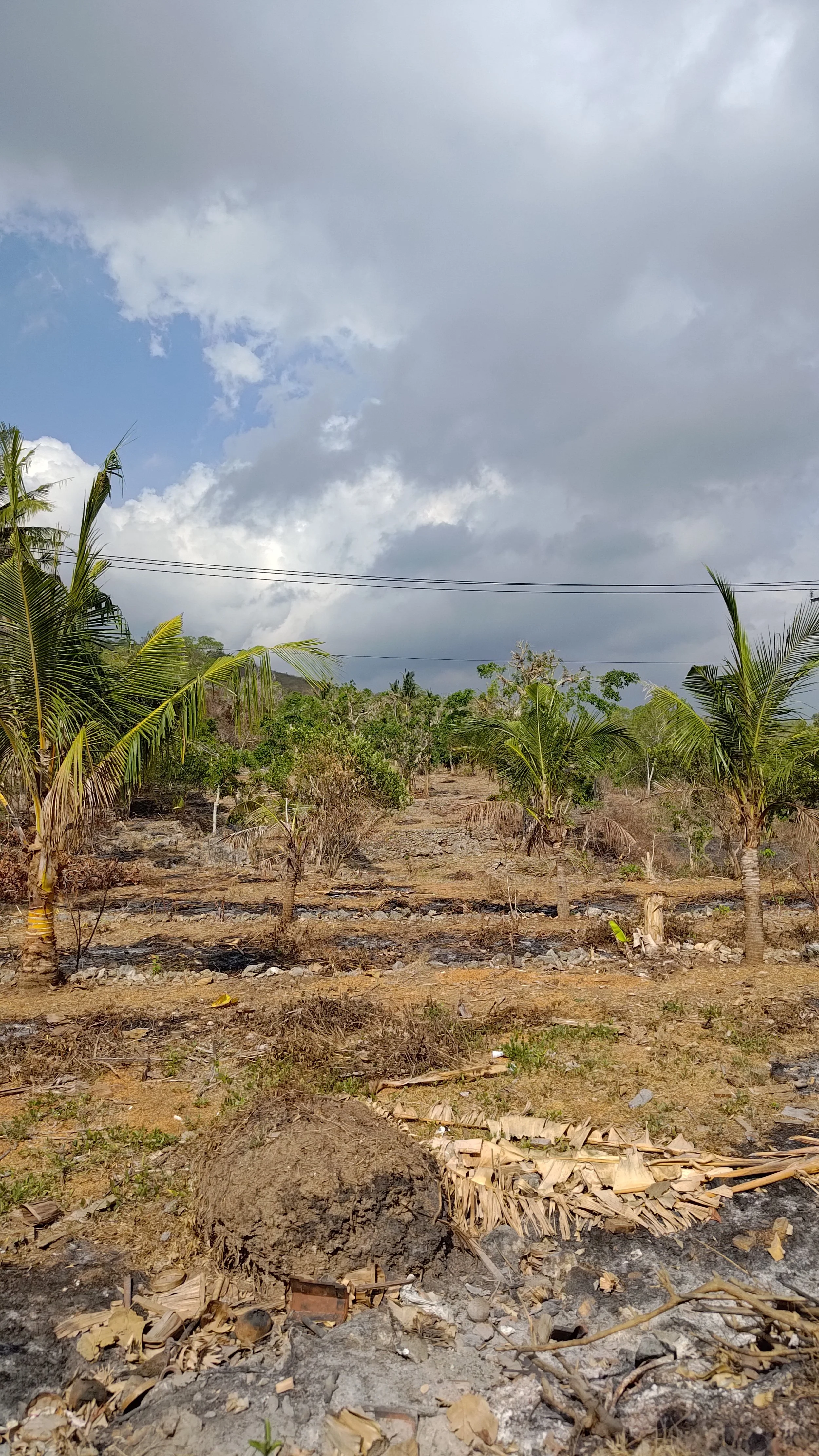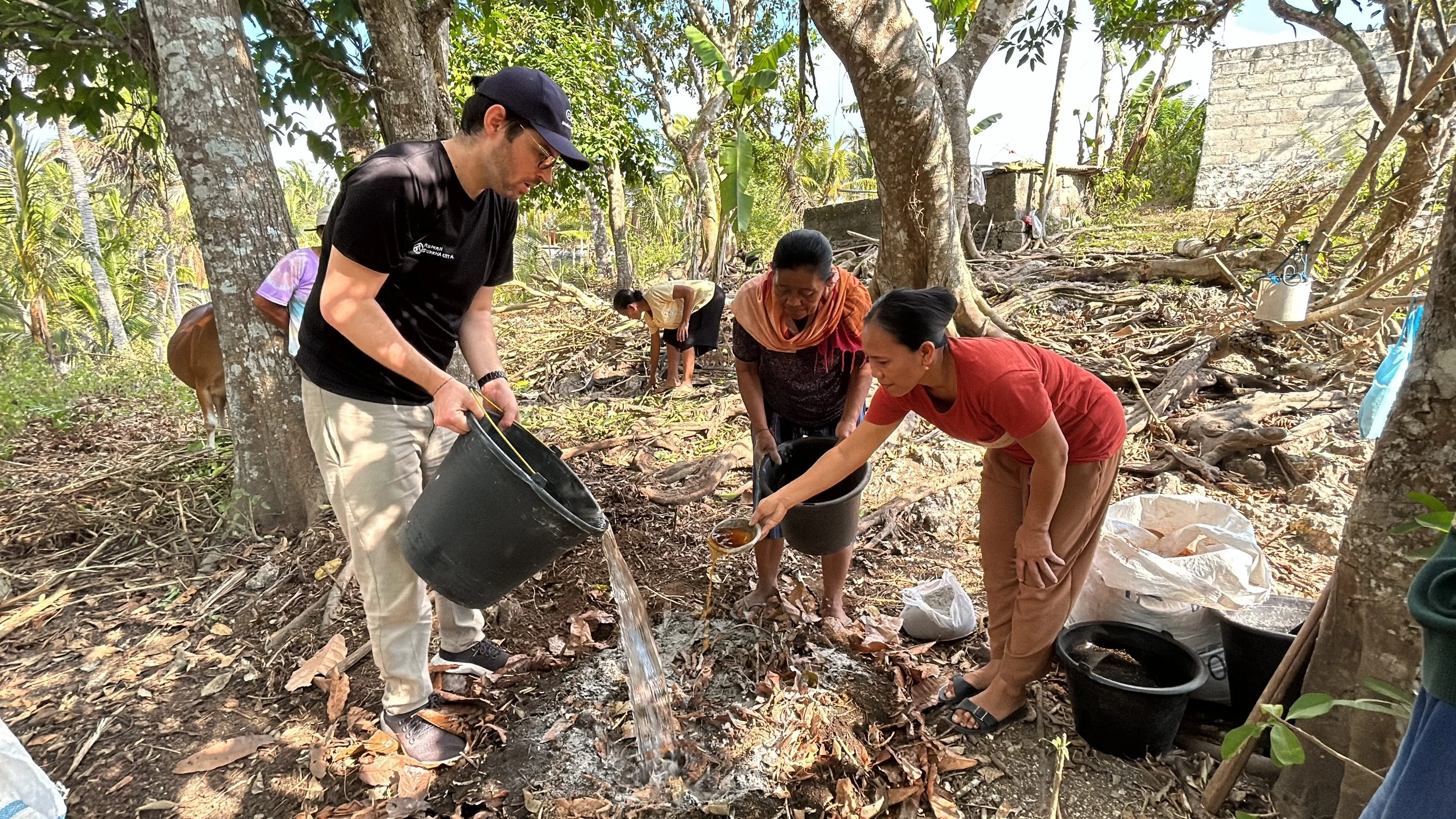Climate Resilience: Retracing the Way of the Ancestors
Tumpang Sari (agroforestry), compost making and herbal pesticides: We returned to our women community in Nusa Penida, Bali, Indonesia to continue our Mama Kapas training. The goal: Boosting the women’s climate resilience through regenerative farming.
Bertram (right) and Gumilang Andika (bottom left) from Kopernik with our women community in Nusa Penida, Bali, Indonesia.
Following up on our last visit in August, we recently returned to our Mama Kapas women community Nusa Penida, Bali. Together with our on-the-ground partner, Kopernik, we got our hands dirty as went from theory to practice - providing the women with practical tools and new knowledge they can use during the next growing season.
Signs of a Changing Climate
The women had asked us to return in October as this used to be the time when the rain finally returns after long months of drought. But this year, the rain kept everyone waiting: Even now in December, rainfall is still sparse and irregular, making it difficult for farmers to determine when is the right time to plant their crops.
It’s one of the many signs of a changing climate - and women like our farmers in Nusa Penida are the first to feel it.
The dry season has been particularly long this year, turning everything brown except a few palm trees.
Boosting Resilience
Our Mama Kapas program is designed to support women farmers as they adapt to the challenges of a changing climate: Together, we trace back the methods of their ancestors such as intercropping and agroforestry - and combine it with new tools such as composting with the help of beneficial microorganisms. All methods that have been proven to promote soil health and allow it to store more water - so it can continue to give life during prolonged droughts.
During our training in Nusa Penida, we focused on creating the women’s tumpang sari (agroforestry) design for the next planting season - combining a minimum of 3 different crops in one plot, surrounded by trees and living fences. The benefits quickly became clear to the women: They would no longer rely on just a single crop to succeed. And they could grow more of the crops they liked and needed anyway - such as ginger for their local jamu (health drinks) as well as flowers (pollinators!) for their daily offerings.
Learning how to make compost from cow dung, dry leaves, brown sugar and beneficial microorganisms
But of course theory alone was not enough: We spent hours in the sun, sharing and learning together how to make herbal pesticides and compost from cow dung and organic waste - returning life and nutrients to the soil while also improving its ability to absorb and store water. While hesitant at first, the women quickly grew excited by the prospect of making their own, organic fertilizer - using waste that was available for free and usually burned or discarded.
The women ended up planting the cotton seeds (we brought about 15kg this time), along with the other crops of their tumpang sari farms, about one month later. Nourished by their own compost, protected by herbs and blessed by the slowly returning rain. We’re excited to return soon and see the results of the women’s hard work and dedication!
We brought 15 kilograms of cotton seeds for our women farmers to plant.
Your contributions directly support the capacity building trainings we host for our smallholder formers in rural Indonesia. Subscribe to our newsletters here and follow our social media to stay up-to-date with the latest field notes from us!
Thank you for supporting our work.




